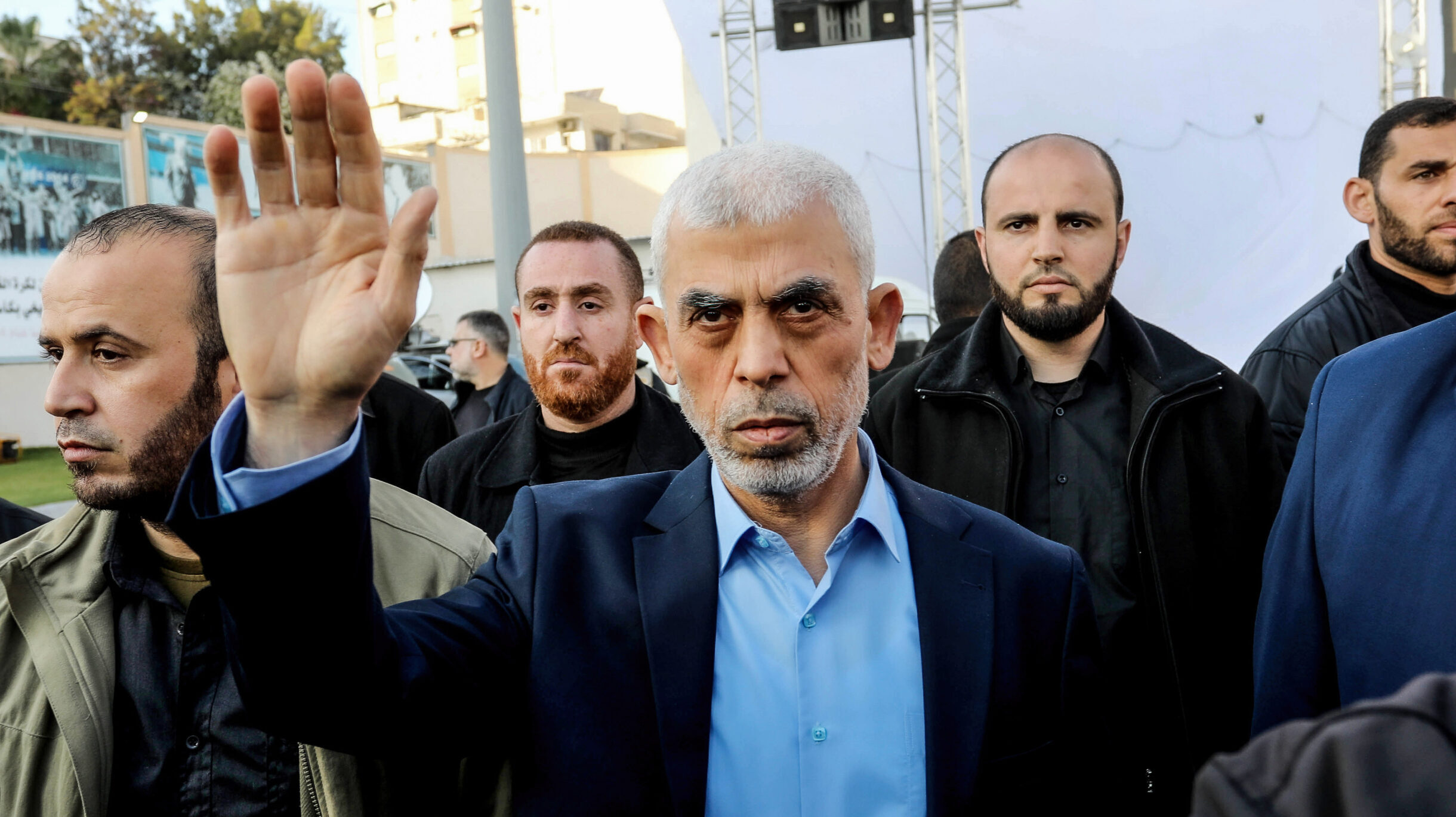Bibi’s ‘All Eyes on Rafah’ Game Changer for the War
Yahya Sinwar’s death marks pivotal moment in Israel-Hamas conflict
The world last saw Yahya Sinwar slouched in a chair in a semi-demolished home, masked in a keffiyeh, and throwing a stick at a drone recording him. These were his final public moments.
Followers of the ruthless Hamas chief, who among other nefarious credits masterminded the sadistic October 7 massacre, saw him as a leader until his last breath. Those hunting him viewed his death as a triumph over one of the world’s most wanted villains. All of this took place in Rafah, a location where, for the past year, the American administration repeatedly warned Israel not to go.
The Israeli Defense Forces (IDF) ignored the warnings and went to Rafah, resulting in the death of Sinwar—a potential turning point in the war that began on October 8. On October 7, thousands of Sinwar’s minions, Hamas regulars and, by some reports, any Gazans who wished to participate, invaded Israel’s southern communities, leaving widespread death and destruction in their path.
As many predicted, President Joe Biden, who had previously advised Prime Minister Benjamin Netanyahu not to send forces to Rafah, used Sinwar’s death to press for a cease-fire. The president reportedly reiterated his warning to stay out of Rafah, likely aware that Netanyahu and the IDF had intelligence suggesting Sinwar was hiding there, surrounded by hostages pressed into service as human shields.
A border city that contains Gaza’s sole crossing point into Egypt, Rafah is a vital lifeline for goods entering the Strip and Hamas’ last major stronghold. It was also one end of tunnels connecting the Strip to Egypt and for some, a ticket out of Gaza.
Rafah became a focal point on social media with a theatrical pro-Palestinian campaign, “All Eyes on Rafah,” meant to draw attention to Israeli attacks on refugee camps. The slogan and image were shared over 47 million times, aiming to sway global opinion.
For those who see Sinwar as evil incarnate, there is irony in Rafah becoming his final stronghold and the place of his death.
In response to “All Eyes on Rafah,” some pro-Israel voices asked, “Where were your eyes on October 7?” Today, Israel feels vindicated
Give the gift of hope
We practice what we preach:
accurate, fearless journalism. But we can't do it alone.
- On the ground in Gaza, Syria, Israel, Egypt, Pakistan, and more
- Our program trained more than 100 journalists
- Calling out fake news and reporting real facts
- On the ground in Gaza, Syria, Israel, Egypt, Pakistan, and more
- Our program trained more than 100 journalists
- Calling out fake news and reporting real facts
Join us.
Support The Media Line. Save democracy.
Rafah will forever symbolize a key moment in this war.
As the conflict enters its second year, with fighting spreading to Lebanon, Yemen, Iraq, and Syria, Israel now faces Iran—the conductor of this “orchestra of evil”—alone.
The message from Iran’s supreme leader, conveyed through Hezbollah, is that a hostage deal could follow if Israel ends the war.
Iranian Parliament Speaker Mohammad-Bagher Ghalibaf, in an interview with Le Figaro, called for the enforcement of UN Security Council Resolution 1701, which ended the 2006 Lebanon War. The resolution, largely ignored, requires the area between the Israeli border and the Litani River—a distance of around 30 kilometers (18.6 miles) along most of the border—to be free of armed forces, except for those of the Lebanese government and UN peacekeepers. Hezbollah’s presence in this area is a clear violation of the Security Council resolution.
Lebanon’s Prime Minister Najib Mikati rebuked Iran for “blatant interference in Lebanese affairs” and trying to impose “a rejected guardianship” over the country. Still, observers see this as an Iranian attempt to calm things down.
Hezbollah, Iran’s proxy, joined the Israel-Hamas war on October 8 in support of Hamas. However, with Hamas fractured and waiting to appoint Sinwar’s successor, their current stance is that hostages may be released if Israel ends the war.
Israel is contemplating an endgame strategy for the Gaza conflict, with Hamas’ operational infrastructure weakened but not destroyed. The fate of the 101 hostages, both living and dead, is at the center of what is tearing Israelis’ hearts out, alongside the need for security at its borders and within its cities.
Continuous rocket and drone attacks from Lebanon, Iranian missile barrages, and assaults from Yemen have been met with bold Israeli responses, including targeted assassinations of terrorist leaders and operations like the “pager plot,” which wounded thousands of Hezbollah fighters. This deadly game may have reached a turning point.
Iran doesn’t appear ready for a “World War III” confrontation yet. Meanwhile, Netanyahu stands firm on his position: “Put down your weapons, and the war is over.” The difference now is that he’s offering safe passage to those who disarm and free the hostages.
Netanyahu is also weighing Israel’s response to Iran’s recent launch of 200 ballistic missiles targeting its cities.
With US elections approaching, President Biden, Vice President Kamala Harris, and former President Donald Trump view Sinwar’s death as a step toward ending the war. Pressure is mounting on the Israeli government to agree to a cease-fire.
Netanyahu is in a stronger position to end the war with more secure borders. UAVs have reshaped modern warfare, and thousands of tunnels in Lebanon remain a threat. He cannot leave Israel vulnerable to future drone attacks, especially after one recently targeted his home in Caesarea.
“All Eyes on Rafah” may become the defining slogan of this multifront war, but it has taken on new meaning.
By eliminating Sinwar, Netanyahu has achieved a key war objective. While this significant milestone grants him some validation, his next steps are no less fraught with danger.




